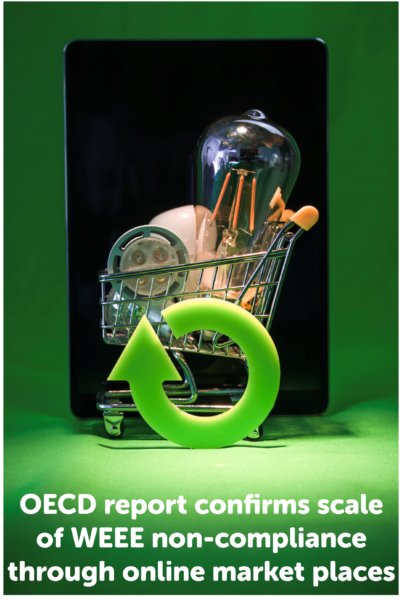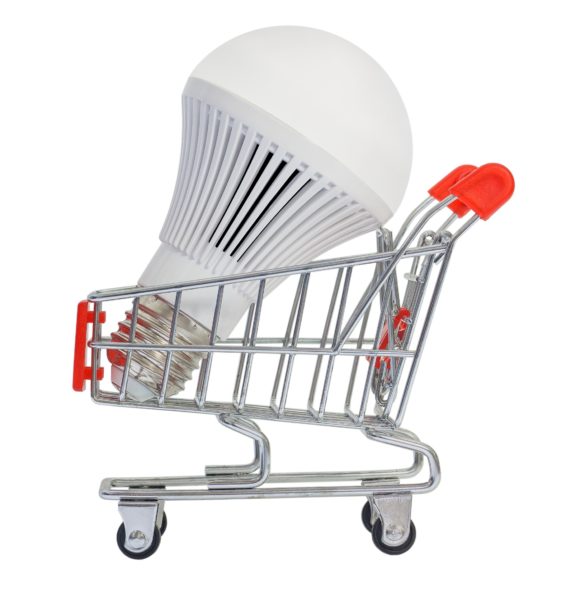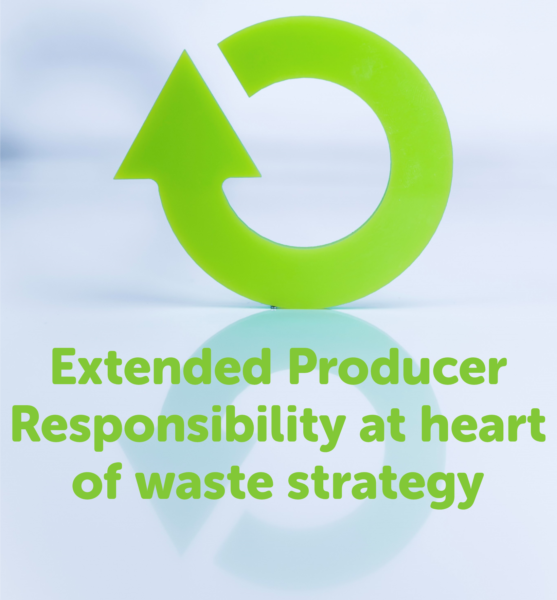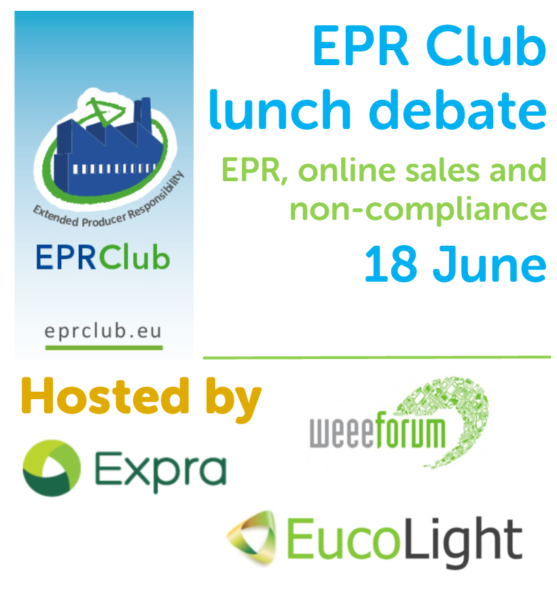EPR Club Debate recommends new legal requirements in WEEE/Waste legislation to tackle online free riders
The EPR Club discussed how to tackle online freeriding at a debate on 18 June in Brussels. It was hosted by EucoLight, EXPRA and the WEEE Forum , representing three important product streams under EPR. Round the table were representatives from EPR organisations, the European Commission, and online platforms.
The event looked at work done to date, the current situation, solutions, and possible next steps.
Background to the need for a debate on online freeriding
Online platforms and EPR

The concept of Extended Producer Responsibility (EPR), was introduced nearly thirty years ago. It’s aim is to make the producer responsible for products – from design through to its end of life and disposal.
In 2007 electrical and electronic product were covered by EPR when the UK‘s 2007 WEEE Regulations came into force. Producers had to join a WEEE compliance scheme. This meant that funding was available to make sure these products were recycled responsibly and recorded.
With a huge growth of online sales, the WEEE system could be under threat. Research has shown that there is large scale non-compliance with online sellers[1], and therefore they are not funding their share of recycling, referred to as freeriding. This is estimated to be greater than 30% of sales across the EU and set to grow. The OECD has seen a growth in business in internet trade from 2014 to 2017 by over 60% in 8 major EU economies (150 to 230 billion €). Authorities need to take action now to avoid a collapse of EPR systems.
Waste Framework Directive – Article 8a
The new Waste Framework Directive has recognized online non-compliance challenge by setting out the minimum requirements for EPR schemes (Article 8a), also especially for this distance selling sector:
“Member States shall establish an adequate monitoring and enforcement framework with a view to ensuring that the producers of products and organisations implementing extended producer responsibility obligations on behalf of producers, implement their extended producer responsibility obligations, including in the case of distance sales, the financial means are properly used, and all actors involved in the implementation of the schemes report reliable data.”
Working together to address online freeriding
EucoLight and WEEE Forum hosted a conference on online freeriding in Brussels on 13 September 2017. A WEEE Forum workshop on 7 May 2018 in Pyrgos, Cyprus, brought new opportunities to take stock of progress made. The workshop collected data and intelligence, identified good practices for Member States and compliance schemes. And, most importantly, learned from each other what we can do collectively in joint initiatives.
Outcomes of the EPR debate
Round the table at the EPR Club debate were representatives from: European Commission, Amazon European, Belgium Packaging Commission, WEEE Forum, EucoLight, EXPRA, Fost Plus and Green Dot Norway. This contributed to a varied debate with contributions from companies, authorities and associations. The input from all is summarised below…..
 WEEE Forum
WEEE Forum
Pascal Leroy, WEEE Forum Secretary General presented considerations to address online free riding and recommended actions to be taken.
Considerations
- Not just small-seller issue, nor just confined to websites in Asia
- Even some of the largest online platforms evade their obligations
- Particular problem when there is no legal entity in Member State
- Marketplaces legally avoid EPR obligations as they are not the seller or importer
- More serious issue for smaller territories with history of buying overseas and no physical entity
- Small EEE more of an issue than larger EEE (easier to post direct to consumers)
- EPR regulations are complex and confusing for distance sellers.
- Enforcement activity is resource intensive and not well co-ordinated across jurisdictions
- Scale of the online free-rider issue: 5-10% of the EEE market on average
 Recommendations to address the online freeriding
Recommendations to address the online freeriding
- Tap into European WEEE Enforcement Network
- Take challenging free-riders beyond the Member States level
- Use social media to voice concerns about free-riding
- Encourage co-operation among enforcement agencies
- Keep other WEEE systems in the loop
- Undertake awareness campaigns, also outside Europe
- Reach agreements with marketplaces
- Reach agreements with home delivery companies
- Set up working groups with main stakeholders
- Develop new legal requirements in WEEE/Waste legislation
EucoLight action taken
EucoLight Secretary General, Marc Guiraud, highlighted case studies of his members:
- Denmark: 37 free riders were found and reported to Amazon
- Germany: 53 free riders of 100 random checks were found by competition association “Lauterer Wettbewerb e.V.” and reported to environmental office and Amazon.
- UK: free riders were detected and reported to Amazon
Amazon have agreed to review, and delist, those producers that do not come into compliance within an agreed period of time. Amazon also agreed to a meeting in Brussels to discuss the problem, and possible voluntary solutions. EucoLight has also made a commercial proposal to Amazon to enable them to offer WEEE compliance to their suppliers.
Comments from EU Commission
The Commission representatives highlighted that they are playing their part at a European level. Member States have to introduce specific measures to make sure enforcement takes care about all obliged companies, whatever distribution channel they are using. They recognize the growing challenge and agreed to further discuss the topic when they meet with the representatives of the Member States in their regular meetings.
Comments from Amazon
The Amazon representative admitted the growing concern of acting as a selling platform that not all users are in compliance with the various laws. He explained that they have introduced a dedicated communication towards their sellers and they will seek for collaboration with their competitors. He informed that a respective meeting with their main competitors will take place in London during the next weeks, under the moderation of the British authority DEFRA.
Conclusion of the EPR debate
The discussion showed that implementation in the 28 Member States has
- varying formalities,
- varying reporting,
- different fee structures.
This is not helpful to make it easy for small and medium sellers to comply with national EPR obligations.
The “authorized representative” model for foreign importers is not practical as is seen as a complicated and expensive solution.
For Producer Compliance Schemes, it would be purposeful to amend “obligated producer” to make the platform a “producer” if they sell products with an EPR obligation from non-compliant companies.
The participants recommended that:
- the Commission invites EPR organizations to one of the next meetings with representatives of the Member States,
- Amazon speaks to the other internet platforms to promote the idea of a common working group with EPR organizations, inter alia to establish a harmonized procedure for questionable cases,
- VAT registration and the EPR registration is linked,
- EPR organizations develop a common communication explaining the EPR obligations for companies and how they can be fulfilled.
This can be used by all platforms and could be distributed by the Chambers of Commerce in various countries.
Further reading
Recolight press releases on EPR and freeriding
Recolight welcomes Defra move to put Extended Producer Responsibility at heart of waste strategy
[1] OECD Report into online freeriding
OECD


